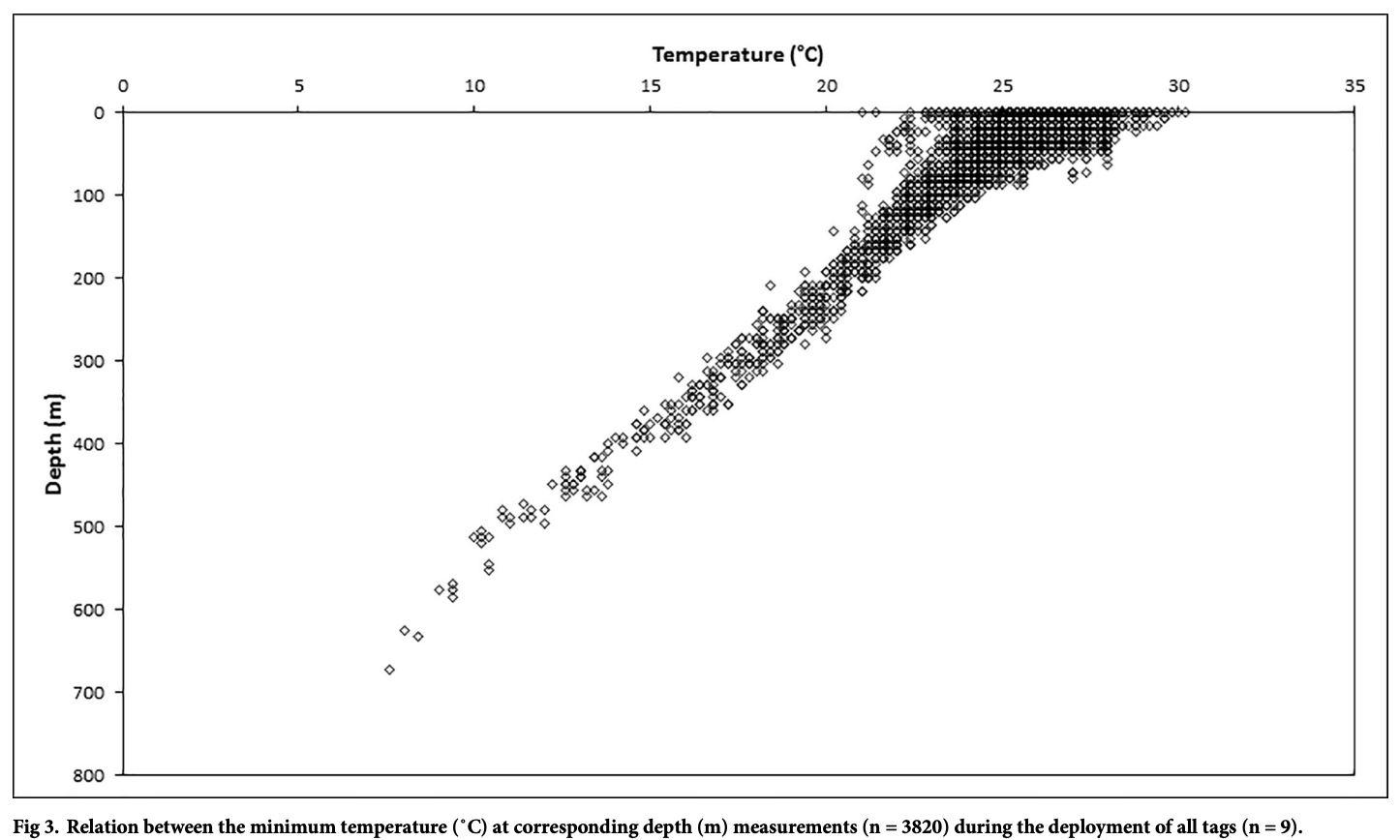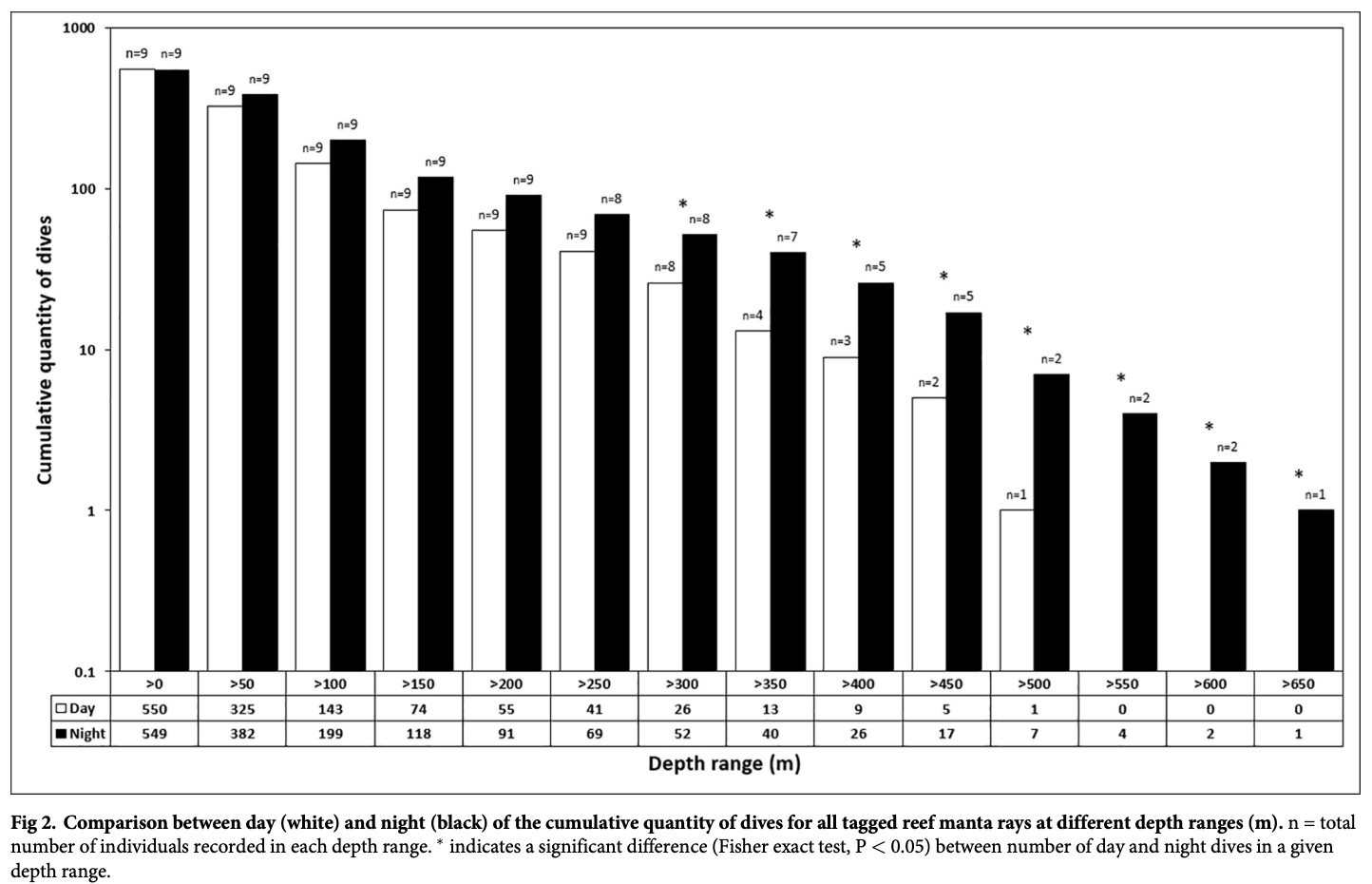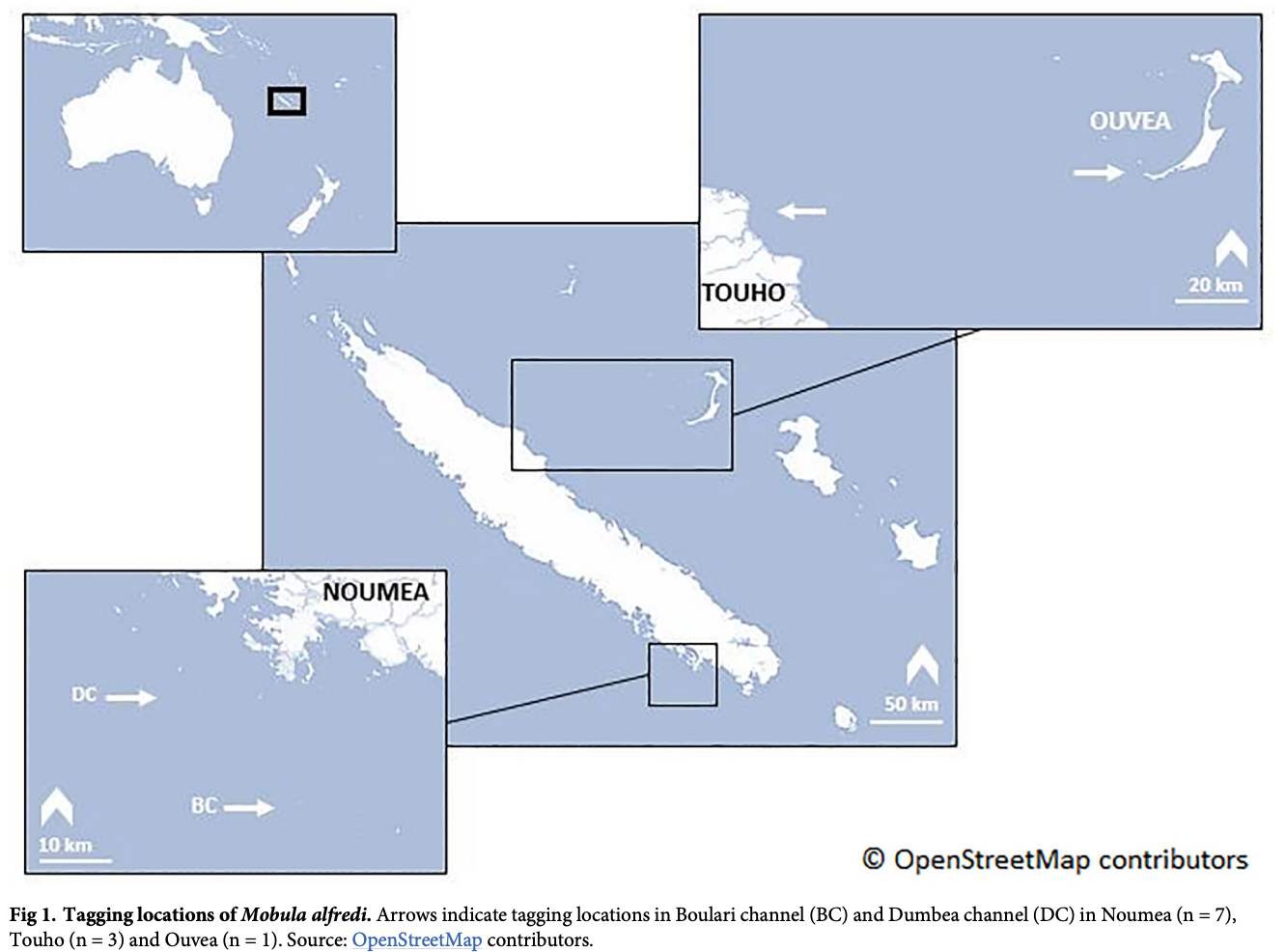Diving behavior of the reef manta ray (Mobula alfredi) in New Caledonia: More frequent and deeper night-time diving to 672 meters
March 2020
Hugo Lassauce, Olivier Chateau, Mark V. Erdmann & Laurent Wantiez



Summary: This study used satellite tags to investigate the diving behaviour of reef manta rays in New Caledonia, and found that all nine tagged manta rays performed dives exceeding 300m, with the deepest recorded at 672m. Most of these deep dives occurred during nighttime, indicating the manta rays may be accessing important food resources at these depths and potentially suggesting a lack of zooplankton in the surrounding surface waters. This study provides new information on the habitat use of manta rays and increases the known depth range by more than 200m.
Abstract
“The interest in reef manta rays (Mobula alfredi) from the scientific community is growing in reaction to the major decline of populations around the world. Studies have highlighted the need to further investigate the spatial ecology of this species to inform conservation and management initiatives. Here we briefly report the results from nine SPLASH10-F-321A pop-off satellite archival tags (PSAT-tags) deployed in New Caledonia that recorded the world’s deepest known dives for reef manta rays. All tagged individuals performed dives exceeding 300 m in depth, with a maximum depth recorded of 672 ± 4 m. Diel comparisons revealed that most of the deepest dives occurred during night-time. We hypothesize this deep-diving behaviour is employed to access important food resources at these depths during the night and may also indicate that zooplankton abundance in the surface waters surrounding New Caledonian coral reefs is insufficient to sustain these megafauna. These results add new information on the habitat use of this species in a region where manta behaviour has not previously been studied, and increase the known depth range of M. alfredi by more than 200 m.”
Infographics
Author Affiliation
ISEA, University of New Caledonia
Conservation International New Caledonia
The Manta Trust
Laboratory of Marine Biology and Ecology, Aquarium des Lagons
Conservation International Asia-Pacific Field Division, University of Auckland
Funded by
Conservation International
Aquarium des Lagons
MAC3 Impact Philanthropies
The Manta Trust


